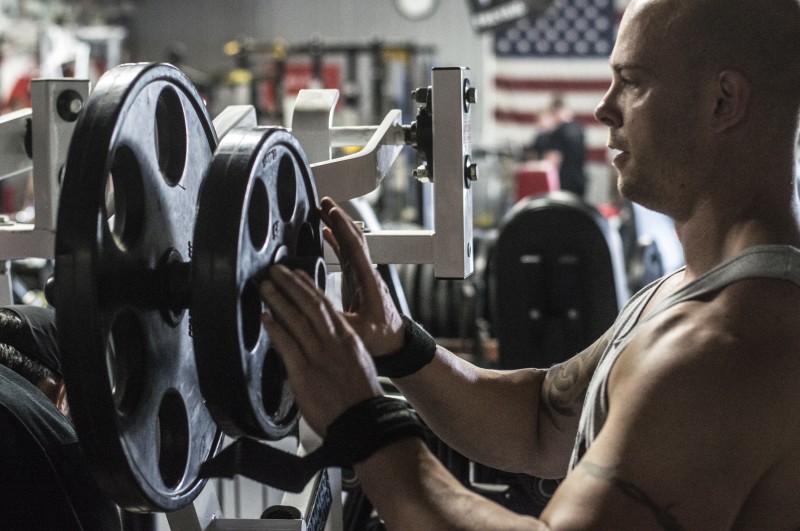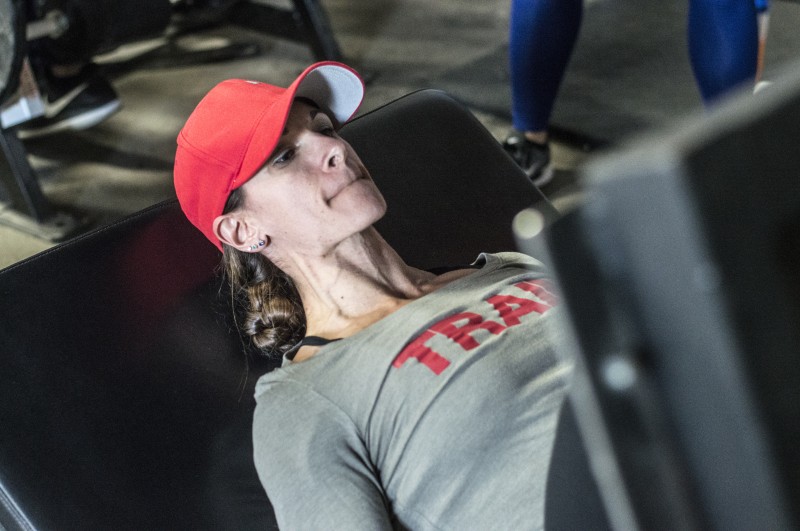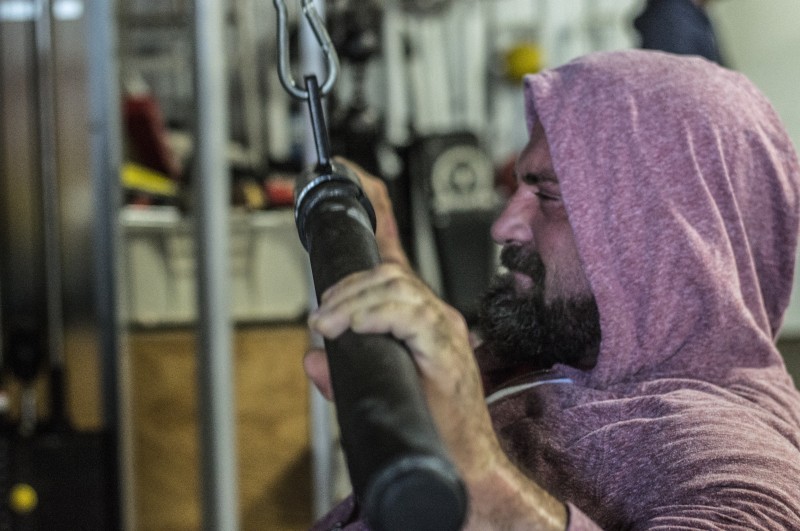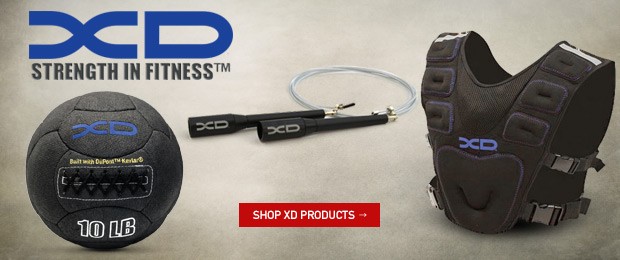
I started lifting when I was 15, and I turned 27 this year. If I had to objectively consider my expectations when I was 15, and tell my younger self one lesson, it would simply be the following:
“This is going to take way, way, WAY longer than you expect.”
And knowing my younger self, I’d probably tell me to get fucked, and proceed to do nothing differently.
On the other hand, I’d like to think that I’m at a point of maturation where if an older me appeared, I’d listen to what I had to say. But that is a whole different tangent on time travel and the nature of time.
RECENT: The 10 Principles of Being Personal with Personal Training
Regardless, the following are lessons learned only through experience and the acceptance of reality. The outcomes are never as immediate as we’d like, and the expectations may never be met. Whether someone is “hardcore” or merely recreational, everyone has some inherent desire to the process. Training can change from chasing poundages, to training for the sake of the mental regimentation and the sheer enjoyment thereof.
How and when we reach our limits of abilities is decided by many factors. The physiological factors are case-by-case. No two people are the same.
The mental, however — that can profoundly be affected. The mental game has infinite potential for improvement. The following are my own lessons learned along the way. Hopefully they are some of yours as well.
1. Don't believe injuries are a guarantee.
This belief is pervasive across all realms of lifters, and it creates a self-destructive mentality that is to no one’s benefit. Injuries are sometimes unavoidable, no question, but such catastrophic injuries are very uncommon compared to the “stupid” injuries people incur that are entirely avoidable.
Injuries may be a part of the game, as it is sometimes said, but the irony to this is that when you talk to lifters post-injury, it was almost always an outcome of: I should have known better, I kept ignoring the pain, I rushed into X too fast, I shouldn’t have skipped my warm-up sets, I knew I should have shut it down, I knew my setup was off, I was feeling tired and should have backed off...and so on and so forth. To use a continuously clichéd metaphor, lifting is a marathon endeavor, not a sprint. The injuries you incur in your 20s will be the same ones that take you out of the game in your 40s (or sooner).
Lift to be able to lift again tomorrow.
2. Take care of your rotator cuff and shoulder ROM.
How common are pec tears? Very. How many older lifters have busted up shoulders? A lot. How often have veteran lifters advised younger lifters to take care of their joints only to be ignored? All the time.
When dips start hurting your shoulders, don't blame the dips as the problem. Ask yourself why that movement is becoming painful in the first place. Same for any movement. There is no singular exercise that causes pain, but there are exercises that will tell you something is wrong joint/muscle wise.
Pressing heavy may not always be in the cards, but if you can always maintain full ROM in your shoulders, and keep rotator cuff health up as much as possible, you’ll still be pressing well into your later years.
Or you’ll be that guy reminiscing about the exercises that he can no longer do. Don't be that guy.
3. Don't let your hips get tight either.
Different joint, same point. Bodyweight squats shouldn’t be grossly painful. The less ROM a joint has, the greater the incidence of injury. I work with middle-aged populations. When hips become stiff, overall movement and activity as a whole declines rapidly.
Stretch as needed, intelligently program your training, get the massage, do the mobility work, and stop avoiding these things in the first place.
4. Train all lines of movement.
You “press” down, forward, and overhead: dip, pushup/bench press, standing press. You also have intermediate angles of pressing: decline press, incline press.
You pull up, forward, and overhead. You also have intermediate angles of pulling: deadlift, bent-over row, horizontal row, high angle row, chin-up/pull-up.
Your hips can extend down, forward, back, and can also rotate: squat, lunge, deadlift, side lunge, reverse lunge, and crossover lunge.
Be able to do all of them. You may be markedly better at one. If you press horizontal a lot, press overhead to maintain that ROM in the shoulder. Train the upper back with both horizontal and vertical pulling. I do not subscribe to the common “2:1” ratio of pulling to pressing. Rather, be objective in analyzing your discrepancies in strength.
Be reasonably strong in all directions. And then specifically strong in one. Otherwise...
5. Your weaknesses now become your injuries later.
If you are a strong presser, but inverted bodyweight rows and rear delt flys are brutally hard, do the rows and do the flys.
Same for hips. If a lateral lunge results in your adductors being about to tear off, you probably need to do that movement or at least stretch. If high bar squats make you cry because hitting parallel is really hard, DO SOME HIGH BAR SQUATS. Your quads and hips will thank you.
Or you could ignore these things, and then act shocked when you tear an adductor or a hamstring.
The shoulder and hips are both orbiting joints. Where they lack strength and muscle now, they will become areas of breakdown later on.
6. Don't train into pain.
I said this already, but it's worth saying again. If something hurts from the first rep, to the middle of the set, to the last rep, you need to cease doing it. And then critically evaluate why this is repeatedly causing pain.
Aches are not pains. Pains are acute, specific, and don't go away after warming up. Don’t start training in pain and end a workout in more pain. Barring being in a rehab setting, you will be creating an inevitable injury.
7. Train around an injury, not through it.
So you got injured. But the worst thing you can do is to stop moving completely. The adage is to train through. I say train around.
Find the movements you can do, that don't hurt. Do those as much as tolerable. Whatever it was that caused the injury, regress it back as many levels as needed. Relative to the whole body of “research”, I feel confident in saying that the sooner an injured area is mobilized, the faster it heals. Which takes us to the next point...
8. If you get injured, rehab it ALL THE WAY.
Not halfway. Not “I think it's fine because it stopped hurting for one day so I’m going to be stupid and go ahead of schedule." Rehab it all the way. Do your rehab movements that you resent having to do. Take training slowly, and keep up the rehab. Modify training as needed. Re-injuring an injury is a bright neon statement that you are an idiot. You only get to make that mistake 2-3 times in your lifting, and then your injuries will decide your training for you.
9. Do all the reps.
Reps build muscle, muscle move weight, and everywhere on your body you lack muscle leaves strength on the table. Your joints won't tolerate everything being down for singles, doubles, triples, etc. Single joint movements are best done for very high reps. Hypertrophy skews towards 6-15. Your sub-maximal strength is what determines your maximal potential. Your 10-rep max is a reliable indicator of strength potential.
Do low reps, do moderate reps, do high reps, do them all.
10. Don't try to hack your strength gains.
Guess what: if you deadlift three times weekly, your deadlift will go up (short-term). It's training the coordination.
This is also works for squat and bench. It's also a great way to tear an adductor, compress your lumbar spine, and end up with a pec tear and/or rotator cuffs that fucking hate you.
Strength can arguably be built over decades, and reaching your maximum potential is not going to happen in just two or three years. Rushing this process will remove you from the process. Play the long game.
11. Progress and quickness don't go together.
A principle unto itself. If something is working, don't change, stop doing it, or try to make it work better. Let it work.
Biology does not care how fast you want something to go. Biology is a long-term continuum. Speed and progress are not allies. If you want progress/strength/muscle to come “faster,” create consistency, and then apply whatever tricks you want to the regimen. But don’t try to hack time; you will lose, and it will win.
12. Don't take time off from training.
Training can be a cornerstone habit of someone’s life. Once it’s gone, everything else declines with it. Training can also keep you alive in dark times, and provide a path out of your lowest points. Training can improve your life, or it can be what you live for (at times). It can keep the pain at bay, or make you feel something when you are numb to everything else.
Don't stop training. The iron is one the few practices in life that will always be honest to you. You will regret not having it in your life.
13. But deload when appropriate.
This doesn’t mean stop training. Learn when to blast and when to cruise. There is intensity and suspension to anything; sometimes the best thing to do is to do LESS. Yin and Yang, if eastern philosophy is something you are into. The human body is not a perpetual motion machine. It will burn out when pushed too far. Adaptations happen over months, not days, and super-compensation is real. Train light when you need to, less when you need to, and you’ll always be able to get after it when you want to.
14. Always be able to walk long distances.
I have no grand philosophy on cardio. HIIT training is highly misunderstood; not everyone can push a Prowler. Some people hate running and some will love it by accident. How much is too much? It's highly individual.
What I do know is this: The human body runs on oxygen. If you stop breathing, you die. If your ability to use oxygen is compromised, your health will suffer.
Is there a “best” way to improve and maintain this? I don't know.
Is there a simple way that anyone can do? Yes, there is. Walk, and walk regularly. Walk under your own power, and you’ll never lose your independence. When you need help being able to move, death is coming for you faster than you’d like. Stay ahead of it by walking.
15. No one cares how much you can lift, except you.
There is a chance someone reading this owns a record or two, so this doesn’t apply to you. For everyone else though, this is reality: You care about how much you lift more than anyone else ever will. Lifting X poundage doesn’t make you a hero, an upstanding citizen, or a moral human being. It's weight on the bar. If you want to be that person, then live a life outside of lifting that fulfills that metaphor. Or be a hypocrite. The choice is yours.
Your friends are not your friends only because of how strong you are. Your wife or boyfriend isn’t with you solely because you moved X amount of weight. The load on the bar is your weight in that moment and all moments, and not anyone else’s. It may be your entire life at points in time, and it may be secondary later on. It may turn into memories eventually. Decide what it means, and realize the meaning may change. And recognize that the memory of it is going to be strongest within your own mind.














When is the next Hypertrophy Protocol article going to be posted?